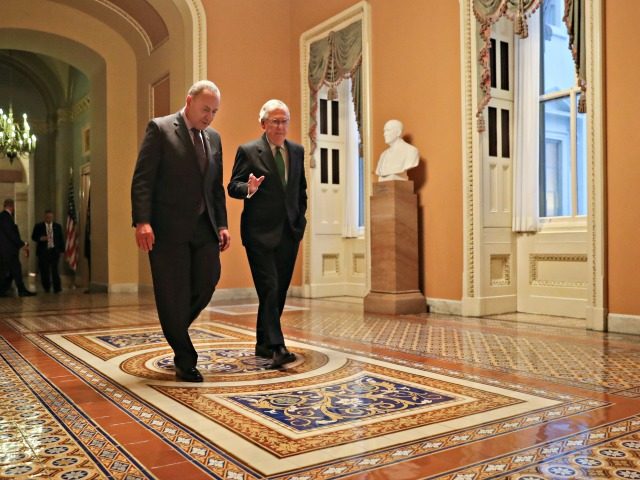The McConnell-Schumer budget deal, known as the Bipartisan Budget Act of 2018, funds the federal government for two years and features some of the largest increases in government ever.
Here are some of the larger items in the Bipartisan Budget Act of 2018:
- Spending limits created by the Budget Control Act of 2011 will be raised by about $300 billion over the next two years.
- Defense spending will be raised by $80 billion in the current fiscal year and by $85 billion next year.
- Domestic spending will increase by $63 billion this year and by $68 billion next year.
- Congress will suspend the debt limit through March 2019, putting the next debt limit vote past the 2018 midterm elections.
- $20 billion for additional infrastructure programs such as surface transportation, rural water, and wastewater systems.
- $6 billion to fight the opioid crisis.
- $4 billion for college affordability programs to help police officers, teachers, and firefighters.
- $90 billion in disaster aid for Texas, Florida, and Peurto Rico.
- The bill repeals Obamacare’s Independent Payment Advisory Board (IPAB), which was designed to limit Medicare costs.
- A ten-year extension of the Children’s Health Insurance Program (CHIP), which is four years longer than the previous spending bill passed last month.
- The two-year spending bill excludes funding for President Donald Trump’s proposed southern border wall. President Trump asked for $25 billion over several years to build the southern border wall.
- The bill does not include any legislation addressing Deferred Action for Childhood Arrivals (DACA) illegal aliens, much to the dismay of House Minority Leader Nancy Pelosi (D-CA).
Read the entire Bipartisan Budget Act of 2018 here.

COMMENTS
Please let us know if you're having issues with commenting.